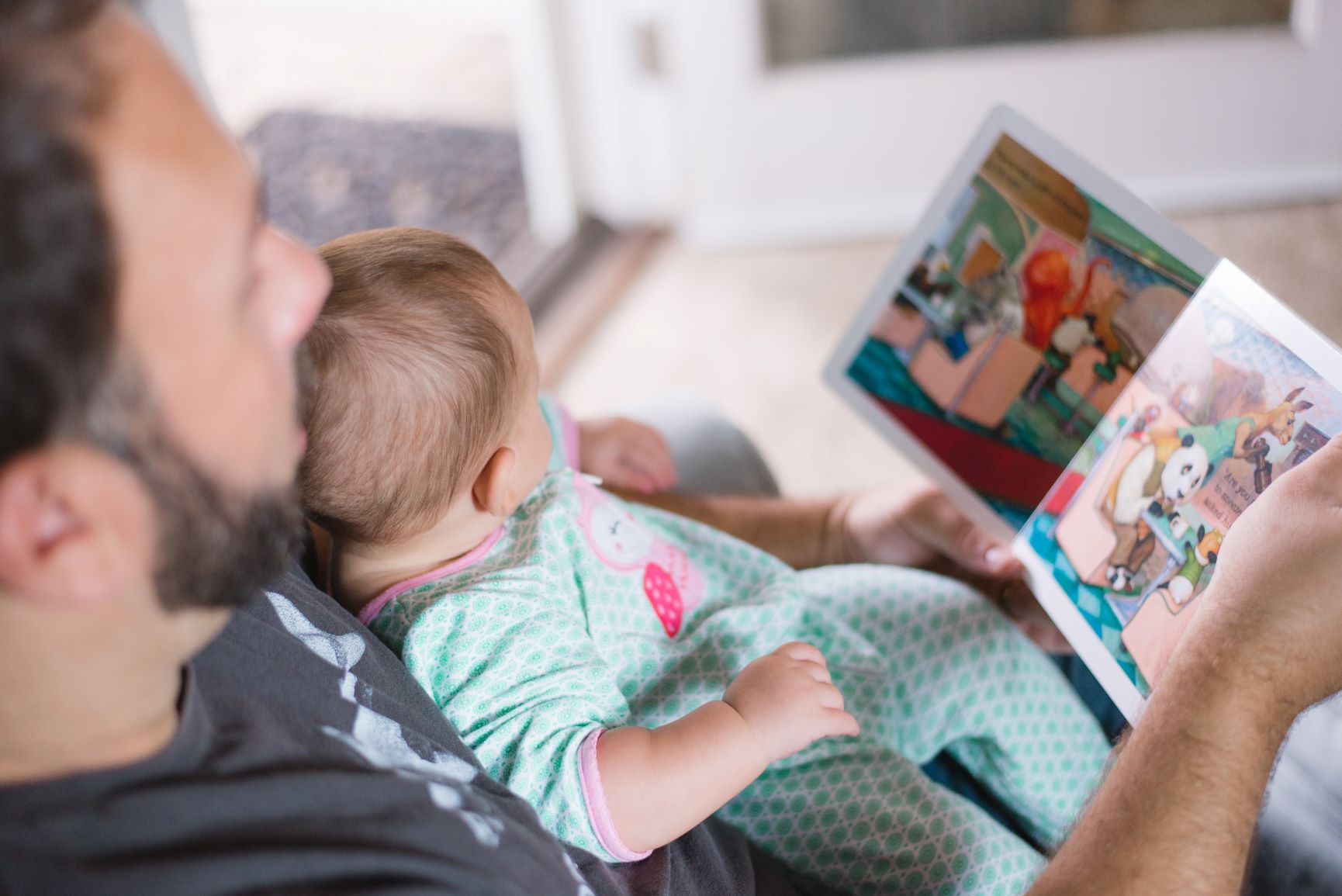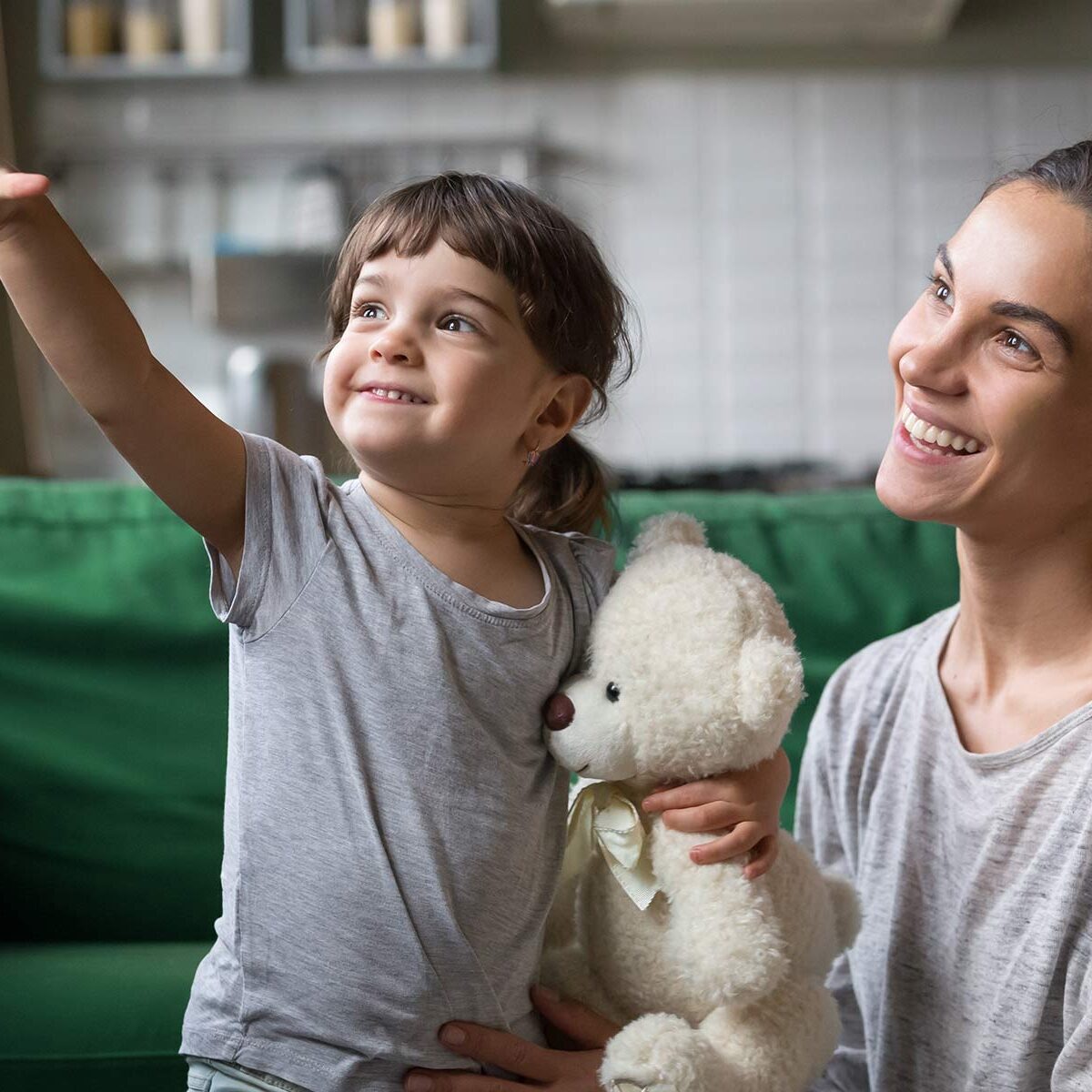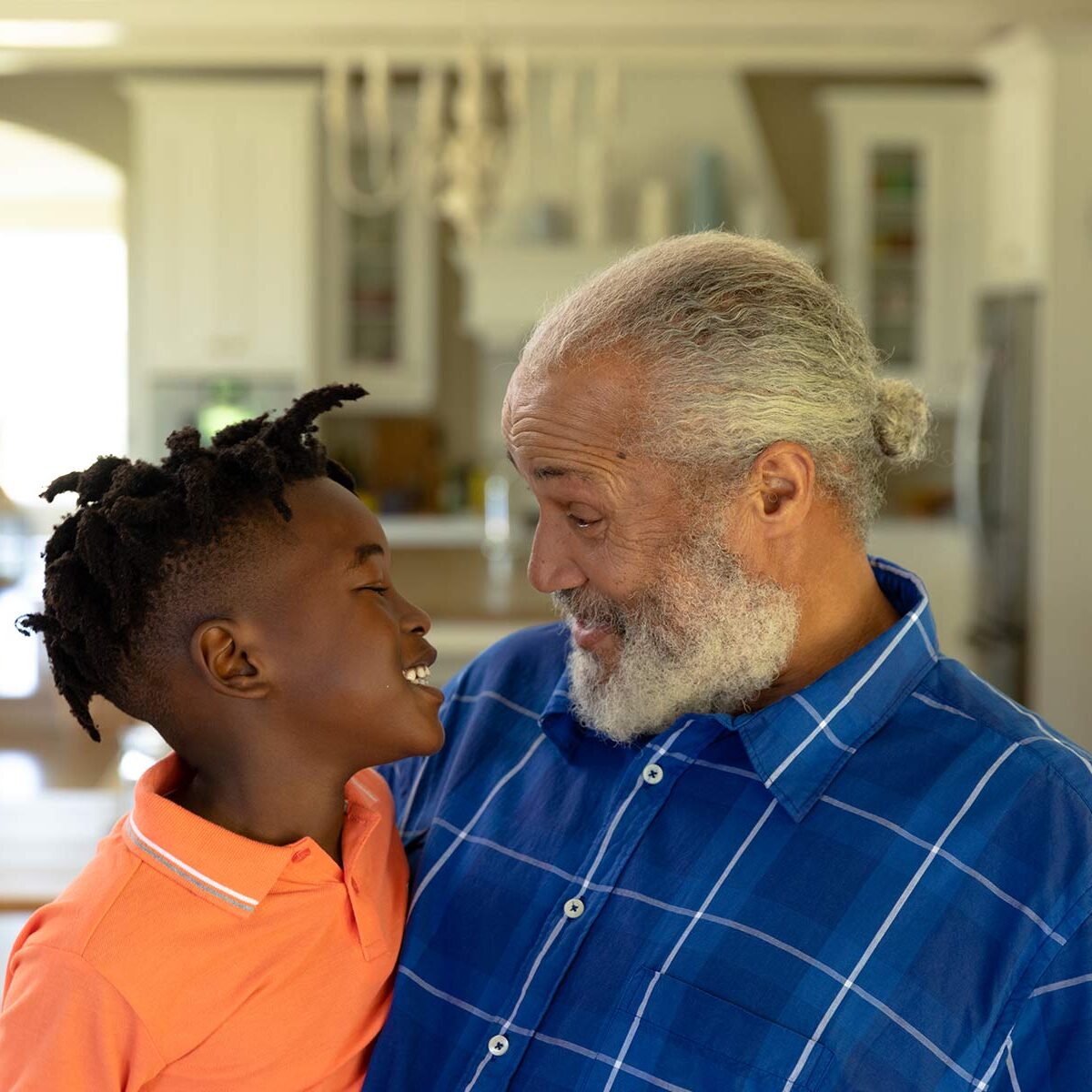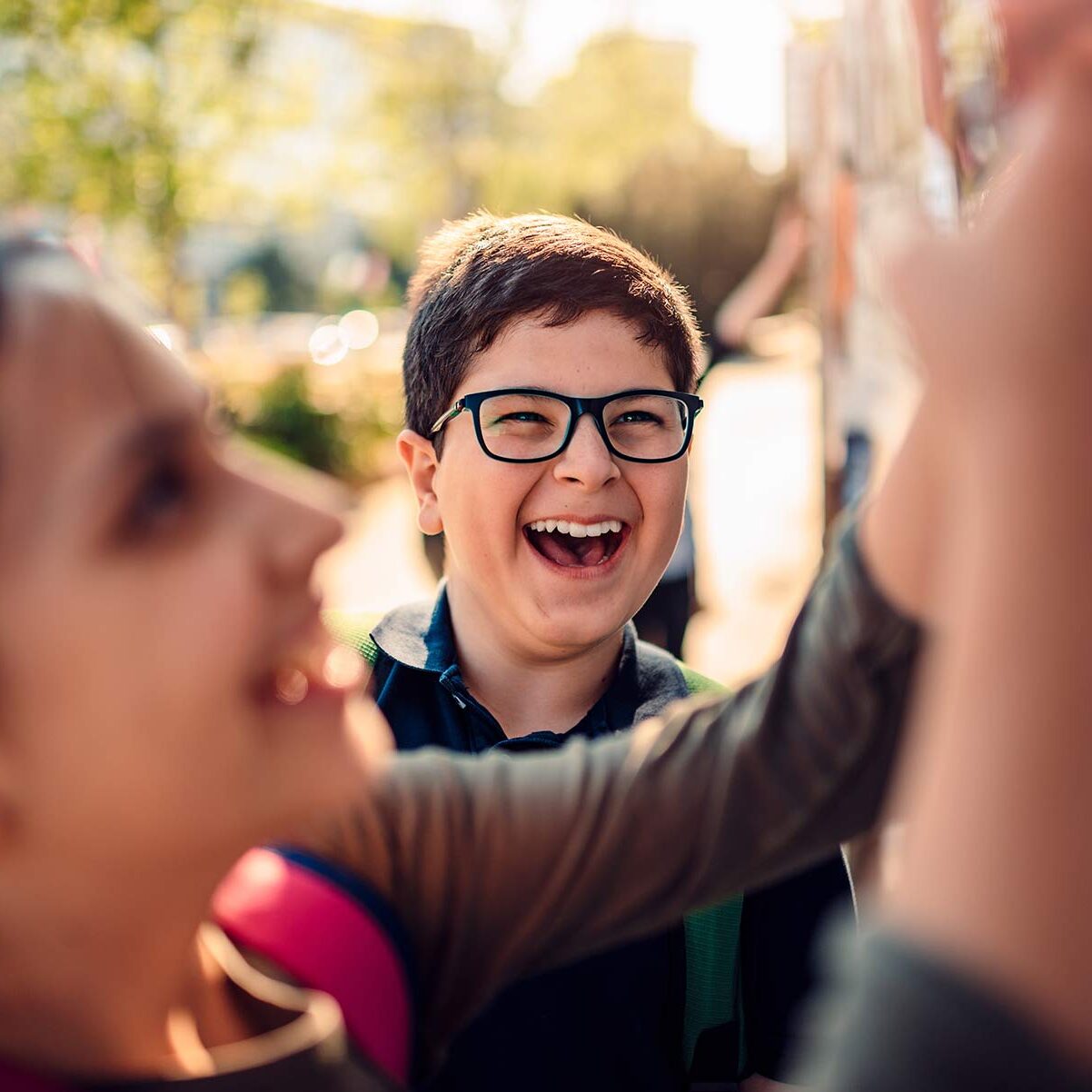
ABOUT THE AUTHOR
Michelle Knowlton
OhioKAN Navigator, Muskingum County Adult & Child Protective Services
Michelle previously worked at The Recovery Center in Lancaster and Pathways of Central Ohio in Newark as a Prevention Coordinator, where she educated students on staying healthy and preventing drugs and alcohol abuse. She taught preschool as a Cooperating Lead Teacher at The Ohio State University Newark, and has done volunteer tutoring at the Zanesville Civic League. Michelle has a bachelor’s of science in Human Ecology, Family Relations, and Human Development from The Ohio State University.
“Just one more story!” It’s a common bedtime refrain for many households with young children, but the benefits are much greater and last far longer into childhood than most parents expect.
In early childhood, reading together is an important bonding experience that establishes motivation for reading over time. Children’s brains develop faster between the ages of 0 and 3 than at any other time. Because of this, it’s important to foster literacy during the early stages of life.
Research has shown that the single most important activity for building understanding and skills essential for reading success appears to be reading aloud to children.
According to Brian Gallagher, Acting Executive Director of Reach Out and Read, a program that promotes early literacy and school readiness, “if children are not stimulated, if they’re not asked questions, their brains start to decline. There’s real opportunity in providing parents with books and encouragement to read to their children regularly, sing with their children, and engage their children in conversation — all of which prepares our next generation to be incredibly successful in school.”
The following are just a few of the lessons young children can learn from reading with a parent (National Association for the Education of Young Children):
- Books contain wonderful stories and songs that I can hear over and over again.
- Reading Time is a time when I am held and loved.
- The letters, words, and pictures you point to all have meaning.
- Listening is part of communication and language includes listening and understanding.
- It’s fun to play with language, and explore rhythm, rhyme and humor.

It’s important to read to older children too, including teenagers. “Children who are routinely read to — day in and day out — and immersed in rich talk about books and the various activities in which they are engaged thrive. And those children with less exposure to books face tougher learning challenges in school and beyond,” (Campbell, et al, 2002; Dickenson, McCabe & Essex, 2006; Celano 2006).
Even though they may be proficient at reading independently, research shows that older children can gain learning skills that correlate to being read to.
Some of the benefits older children receive from being read to include:
- A demonstration of phrased, fluent reading (reading at a good pace)
- Help understanding the structure of the book when they later read it by themselves
- Increased attention span
- Improved listening skills
- Visualization skills from creating a picture in their mind
- Stronger vocabulary
- A safe way of exploring strong emotions
There are a range of benefits to reading aloud to older children. First, they can connect stories to their own life experiences which makes it easier to talk about a specific topic, even sensitive ones. Secondly, children can also connect the books they are listening to other stories or real experiences, which gives them an opportunity to reflect on problem-solving opportunities. Finally, reading to older children allows them to connect what they are hearing to universal concepts, moving the focus away from themselves and allowing them look at problems or experiences from a society viewpoint and broadening perspectives.

If you struggle to engage your child with reading, give your child the freedom to select an age-appropriate book that appeals to them, and offer new material as often as possible. You can find inexpensive reading material at the library, thrift stores, and yard sales. Dolly Parton’s Imagination Library is another great resource that gifts free books to children from birth to age 5 in participating communities.
Read at a leisurely pace with frequent pauses to allow children to think about what they hear, reflect on it, and imagine the people, places, and events in the story. Ask open-ended questions: What do you think will happen next? How do the characters feel? Can you think of a time when this happened to you? Remember, positivity is the key! This can lead to enjoyment, which in turn leads to exploring other books.
Additional Resources
Ohio’s Imagination Library (in partnership with Dolly Parton’s Imagination Library)
- Free books for all children in Ohio ages 0 – 5
- To learn more and enroll: https://ohioimaginationlibrary.org/enroll
Books on Kinship & Adoptive Families
- The Story of My Open Adoption by Leah Campbell
- Sometimes It’s Grandmas and Grandpas Not Mommies and Daddies by Gayle Byrne
- A Grandfamily for Sullivan by Beth Winkler Tyson
- Our Grandfamily by Sandra Werle
Books that Encourage Positive Self-Esteem
- I’m Gonna Like Me- Letting Off a Little Self Esteem by Jamie Lee Curtis & Laura Cornell
- The Lovables in the Kingdom of Self-Esteem by Diane Loomans
- You Are Special by Max Lucado
- Elmer by David McKee
Books to Recognize and Validate Feelings
- I Did It, I’m Sorry by Caralyn Buehner
- The Way I Feel by Janan Cain
- Today I Feel Silly & Other Moods That Make My Day by Jamie Lee Curtis
- My Many Colored Days by Dr. Seuss


















